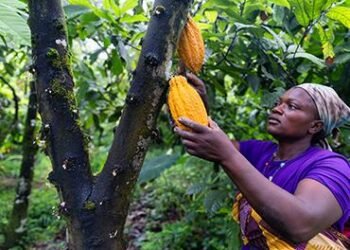The Ministry of Fisheries and Aquaculture Development (MoFAD) has increased Ghana’s fish ponds from 3,915 in 2015 to 4,925 in 2019 through its “Aquaculture for Food and Jobs” programme.
In the same gain and time frame, that is between 2015 and 2019, the Ministry also increased the country’s cages from 7,607 to 10,102 respectively.
This was made known by the Coordinator of the Aquaculture for Food and Jobs, Mr. David Aidoo at a day’s workshop for media practitioners on aquaculture in Accra on Tuesday, August 25, 2020.
The workshop was held with the aim of enhancing media practitioners’ knowledge on aquaculture to enable them report accurately on the sector.
According to Mr. Aidoo, the project since its implementation has expanded the country’s production capacity of the aquaculture’s contribution to the country’s fish needs from 46,610.00 metric tonnes in 2015 to 52,350.00 metric tonnes in 2019.
He explained that although there was a drop in 2019 production capacity compared to that of 2018, which was about 82,000 metric tonnes, his outfit has taken measures to avert future occurrence. The fall from 82,000 metric tonnes to 52,350.00 metric tonnes was as a result of a disease that affected some ponds along the Volta Lake but the Coordinator assured that the situation is being handled.
He further gave a breakdown of other achievements. He said, currently, there are 1,852 small-scale operators of ponds, 14 medium-scale pond operators and 11 large scale pond operators in the country.
The sector Minister, Mrs. Elizabeth Afoley Quaye, said the country was endowed with the requisite resources such as wetlands, rivers, water bodies and human resources for an extensive aquaculture.
She noted that this programme is quite the remedy to solving the problems in the sector.
“With the challenges being faced in the marine sub-sector, aquaculture presents an important alternative to augment fish production, reduce fish imports and provide additional job opportunities for unemployed youth particularly in rural communities.”
She added that government’s vision, as enshrined in the President’s Coordinated Medium Programme for Economic and Social Policies,
“…is therefore to transform the structure of the fisheries sector from being marine over-dependent to ensure the sustainable management of the marine fisheries resources.”
According to Mrs. Afoley Quaye, a transformation of the aquaculture sector through this programme will cause an increase in the sector’s productivity as it will increase domestic fish production, hence reduce fish imports.
The Deputy Minister of MoFAD, Mr. Francis Ato Cudjoe encouraged media practitioners to prioritise aquaculture reporting as well as disseminate the right information to stakeholders and players in the aquaculture industry.





















